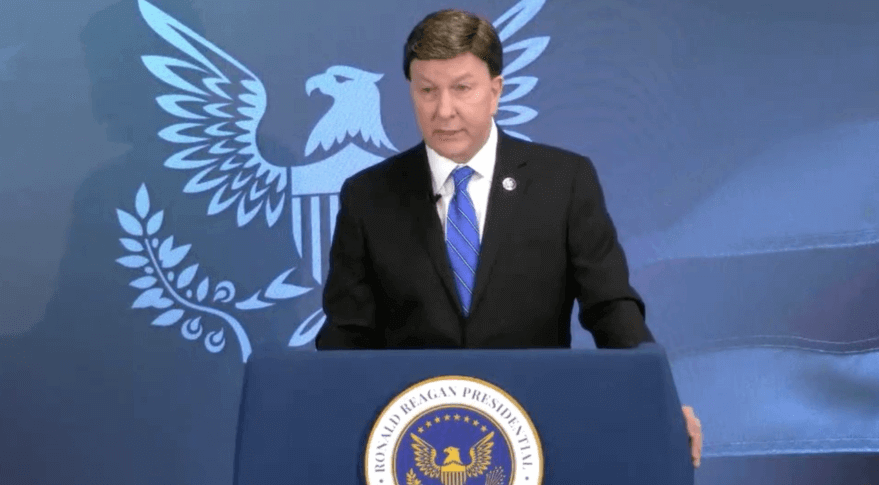
WASHINGTON — Rep. Mike Rogers (R-Ala.) on Jan. 10 was officially selected to serve as chairman of the House Armed Services Committee in the 118th Congress.
Rogers had served as the committee’s ranking Republican in the 117th Congress. He is the first congressman from Alabama to chair the HASC.
“I am honored to have been selected by my House Republican colleagues to serve as Chairman of the House Armed Services Committee,” Rogers said in a statement. “Our nation faces unprecedented threats from China, Russia, North Korea, and Iran. In order to deter these threats and remain the most feared force in the world, we must ensure that our military focuses on lethality and capability.”
Rogers for years has been a central player in national security space. As chairman of the House Armed Services Committee’s strategic forces subcommittee, he and then ranking Democrat Jim Cooper (Tenn.) led efforts to create a separate military branch for space.
Rogers and Cooper wrote the language to establish a Space Corps under the Department of the Air Force in the 2018 National Defense Authorization Act. Their bill was defeated at the time but it was resurrected in the 2020 NDAA when Congress established the U.S. Space Force.
As the ranking member of HASC, Rogers advocated for bigger defense budgets to position the United States to compete with rising powers like China.
As chairman he faces a challenging political environment with Republicans divided over spending priorities, with factions within the party pushing for defense cuts.
Challenges ahead
“Chairman Rogers’ top challenge this year will be to ensure that the defense budget positions the U.S. to not just compete but win against an increasingly capable and aggressive China, even while Russia continues its illegal aggression in Ukraine,” Rogers’ former aide Sarah Mineiro told SpaceNews.
Mineiro, former staff director of the House Armed Services strategic forces subcommittee and now senior fellow at the Potomac Institute for Policy Studies, said HASC will have to prioritize investments in “everything from enlisted personnel to high-end weaponry, and doing that in the context of downard pressure on the defense budget will be difficult.”
Issues like supply chain security, innovation in defense programs, and access to critical minerals “all require the attention of multiple national security focused committees which has been challenging in the past, but may present new opportunities for Chairman Rogers,” said Mineiro.
Space will remain a high priority, she said. “Part of the reason the Space Force was created was because Chairman Rogers tangibly understood how space-based capabilities underpinned operations in all other domains. I believe that he will continue to focus on space and the Space Force albeit through a different lens at the full committee.”
Rogers likely will “work very closely with the leadership of the Strategic Forces subcommittee to finally drive real meaningful reform for space requirements and acquisitions,” said Mineiro. “But I would also anticipate that Chairman Rogers is eager to see this sort of change across the Department of Defense.”
The HASC for years has worked in a bipartisan manner drafting the annual defense authorization bills, and that should continue under Rogers, Mineiro said. “He has worked with committee members on both sides of the aisle and quite frankly across Congress to fulfill the core mission of the HASC to authorize and provide oversight of the Department of Defense. Every member of the committee and staff take that mission with the seriousness it deserves.”